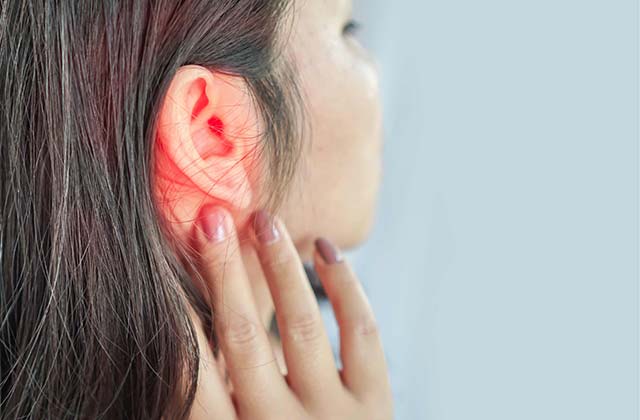6 Ways to Prevent Ear Infection in Babies
An ear infection is a type of bacterial infection that is prone to children between the ages of 6 months and 3 years old. This usually occurs when fluid builds up in the middle ear- the space before the eardrum. The fluid build-up is usually caused by bacteria which results in inflammation in the middle ear.
Three Major Parts of the Ear
- Outer Ear
The outer ear or called pinna is the part of the ear that we can see outside. The outer ear also includes the curved flap down to the earlobe and the ear canal
- Middle Ear
The middle ear is the part of the ear where infections occur. It is between the eardrum and the inner ear. Malleus, incus, and stapes are three tiny bones in the middle ear where sound vibrations are being transmitted from the eardrum to the inner ear.
- Inner Ear
The inner is the part of the ear responsible to keep our balance and is called the labyrinth. Part of the labyrinth is a snail-shaped organ that converts sound vibrations from the middle ear to the electrical signals is called the cochlea. These signals are being carried by the auditory nerve from the cochlea to the brain.
Three main types of Ear infection
Acute Otitis Media (AOM)
This type of ear infection is the painful type where the middle ear or the area behind the eardrum is infected and inflamed. Children experiencing AOM often have intense crying outbursts. They also often their ears and complain to be in pain.
Otitis Media with Effusion or (OME)
This type of ear infection happens when a non-infected fluid is accumulated in the middle ear. This can cause fever, sore throat, or upper respiratory infection. This type of ear infection is difficult to detect because symptoms may not occur. This type is usually mistreated and misdiagnosed most of the time.
Chronic Otitis Media with Effusion or (COME)
This happens when the non-infected fluid in the middle ear remains for a longer period, returning over and over again. Even without infection, the hearing may be affected. This can also affect the child’s immune system when fighting other infections.
Causes of an ear infection include:
- Sore throat
- Cold
- Upper respiratory infection caused by a virus
- Mucus build-up
- Sinus infection
- Allergies
Signs of ear infection in babies
Since babies and toddlers don’t have the capability to communicate verbally, these are the signs and symptoms when your baby is experiencing an ear infection.
- Fever
- Pulling of the ears
- Unusual crying
- Difficulty in sleeping
- Fluid drain coming out from the ear
- Problem in balancing
- Difficulty in hearing
- Vomiting and becoming nauseous
How to Prevent ear infection
- Breastfeeding
Breast milk contains multiple nutrients, vitamins, minerals, hormones, and enzymes that help boost a child’s immune system. Breast milk also contains antibodies that help prevent illnesses, bacterial infection, and viruses. It has long been proven to be better than formula milk.
- Observe cleanliness
Always make sure to keep your child clean and your surroundings clean to avoid contact with germs and bacteria since children’s immune systems are weaker. Make sure to always clean the child’s hands, toys, and things that they may put inside their mouths to prevent them from catching colds and other diseases.
- Vaccinate your child
Vaccines protect and prevent life-threatening diseases and build up your child’s immune system. The vaccine helps prevent common sicknesses like catching a cold, sore throat, allergies, upper respiratory infection, and other illnesses that may lead to bacterial infection or ear infection. Immunization has been proven globally and is saving millions of kids every year.
- Avoid smoking
According to studies, exposure to smoke or second-hand smoking causes numerous health problems to children like heart disease, severe asthma attacks, lung cancer, stroke, and sudden infant death syndrome or SIDS. Second-hand smoking is also considered as one of the leading causes of ear infection among the young ones.
- Avoid overly crowded surroundings
Crowded places are dangerous for infants and children as they may be in contact with people with diseases and viruses that may compromise their immune system.
- Avoid contact with other children who are sick
Isolate your child from children who are sick or with viruses that can be passed on to your child. Prevent other sick children to spend time together so that infection may not spread.
When to Call the Doctor
If your baby is having symptoms of ear infection and is older than 6 months, it is advised to observe their condition for one to two days. There are over-the-counter pain relievers for infants available as first aid medication, saline drops to reduce swelling, or stuffiness from fever or colds. But if the symptoms are still there after 2 days, you can check for online consultations with Canadian-licensed doctors immediately. If your baby is younger than 6 months old and you see these symptoms occur, call your doctor immediately. If you don’t have one, you can drop by in a walk in clinic Guelph or you can check for an online doctor in your area.


